Melbourne Storm announces plans to reduce Welcome to Country ceremonies
NRL powerhouse Melbourne Storm have decided to scale back the club’s ‘Welcome to Country’ ceremonies as debate over the controversial tradition continues to swirl.
The Storm have privately confirmed it will scrap regular Welcome to Country ceremonies throughout the season. News Corp reports.
The club said: ‘we are very keen that our actions (rather than our words) reflect what we stand for as a club in the community’.
The ceremony has been scrapped since late in the 2024 NRL season, but the club has indicated this is now an official call-up.
However, it will go ahead with the ceremony during the NRL’s Indigenous round.
Welcome to Country ceremonies were at the forefront of cultural debate in Australia more than a year after the Voice referendum.
Some of the renewed attention is due to its prominence before major sporting events, and in particular the Giants versus Lions semi-final in Sydney in September, where Aboriginal elder Brendan Kerin said they were ‘not meant for white people’ .
Melbourne Storm is now canceling the regular Welcome to Country ceremonies
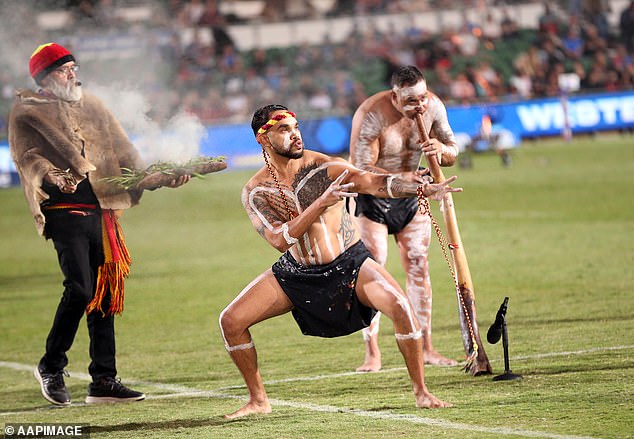
The prominent football club continues with the ceremony for the Indigenous round of the NRL
“It’s a ceremony we’ve been performing since 250,000 years before Christ – and BC stands for Before Cook,” he told the crowd, referring to Captain James Cook’s arrival in Australia in 1770, prior to European settlement.
Mr Kerin said the practice was not welcome in Australia, but that “within Australia we have many Aboriginal lands, and we call our lands ‘Country’, so it is always welcome in the lands where you have gathered.”
“Before colonization, walking on someone else’s land and not being welcomed onto that land could get you in a lot of trouble,” the Marrawarra man and Barkindji said.
Reaction to the Storm’s decision was predictably lively online, with football fans divided over the issue.
A fan posted on X: ‘Strong leadership decision and it’s about time. It is not a welcome, it is a political indictment. No one welcomes someone into their home by ranting about their property rights.”
Another replied: ‘Good for the storm. End the divisive ceremonies.”
A third posted: ‘Thanks Storm. Finally some common sense.’
Others were shocked by the move.
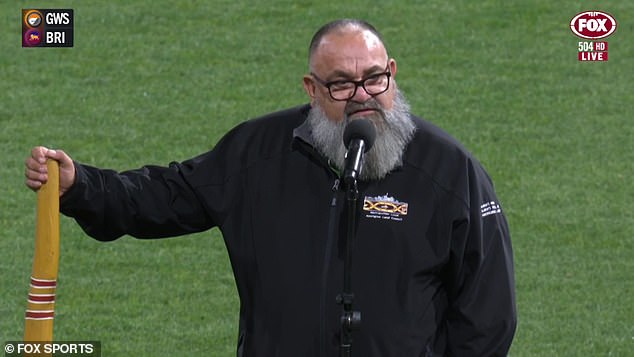
Brendan Kerin, a cultural educator with the Metropolitan Local Aboriginal Land Council in Sydney, issued a blunt Welcome to Country to the AFL, which he said was not for white people.
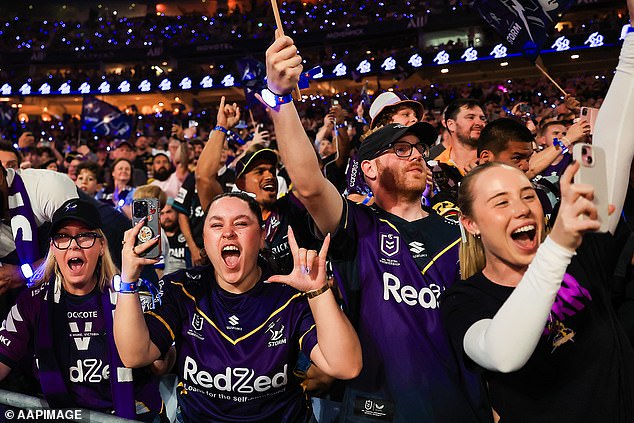
The Storm say they are ‘very keen to make our actions (rather than words) a reflection of what we stand for as a club in the community’
“Yet another reason not to renew my Storm membership,” one X user posted.
Indigenous rapper Briggs said: “Look, the cost of living means cultural recognition just isn’t feasible in this economy. There is a prize for cultural inclusion. Storm could do it if they wanted to; If anyone knows how to work with a salary cap, it’s them.’
While the concept of Welcome to Country may indeed be ancient, the modern form that has permeated public life in Australia was invented just a few decades ago by TV personality Ernie Dingo’s dance troupe.
The Great Outdoors presenter and his fellow dancers devised the improvised routine in 1976 after an awkward confrontation with Maori and Cook Islanders who refused to perform at the Perth Arts Festival until they were ceremonially welcomed.
Richard Walley’s Middar Aboriginal Theater group, including a young Ernie Dingo, created the ritual so the show could go ahead after consultation with local Nyoongar Elders.
On the 40th anniversary of that moment in 2016, Walley told Australian Geographic that he was “surprised” but “asked the good spirits of my ancestors and the good spirits of the ancestors of the land to watch over us and keep our guests safe.” while they are ‘re in our country’.
“Then I spoke to the spirits of their ancestors and said that we are here to care for them and that we will send them back to their land.”
The musician, dancer and writer recited the blessing in the local language, sang a Nyoongar song in honor of their country and the group performed a ceremonial dance, all of which was a great success and struck a chord in the indigenous community.
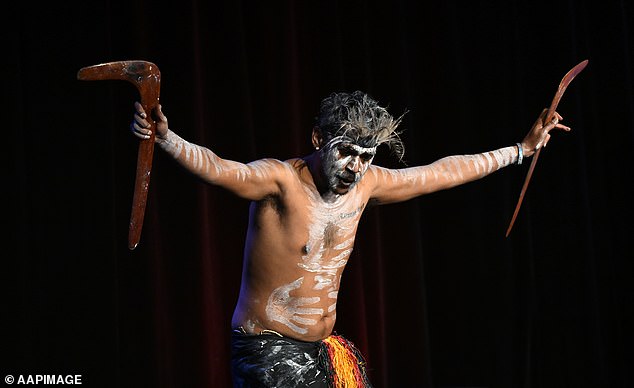
Welcome to Country and Recognition of Country ceremonies are a hot topic for councils across the country
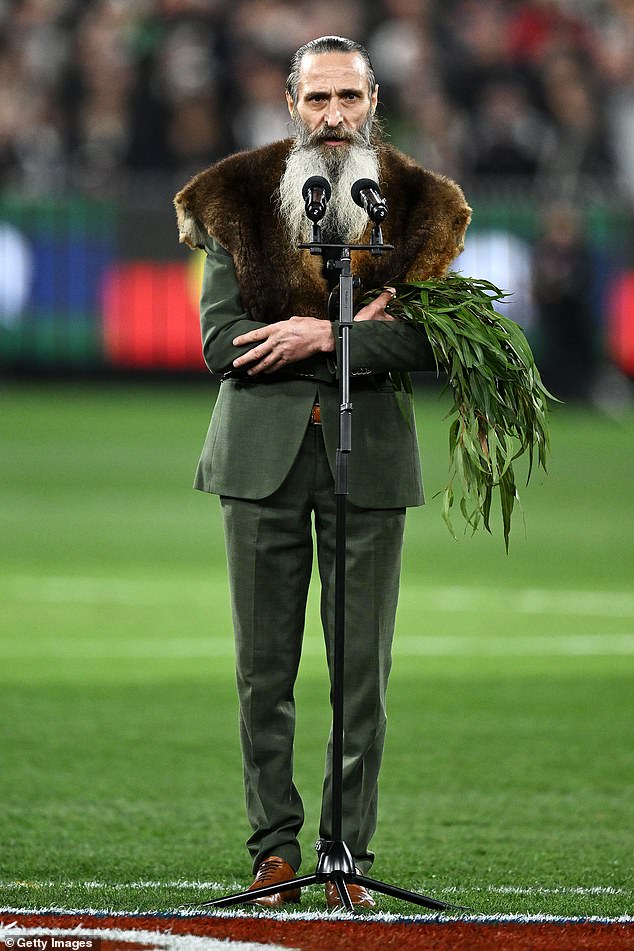
Welcome to Country ceremonies have become a regular part of everyday life in Australia
Three years earlier, organizers of the Aquarius Festival in Nimbin, NSW, received permission from the land’s traditional owners, and Indigenous singer Dicke Donelly performed a Welcome to Country.
However, it was Walley’s version that really stood out and received the most attention.
It was subsequently acquired by the Northern Territory Tourism Board and then by the Australian Tourism Commission and was given a global platform when it was included in the Miss Universe beauty pageant held in Perth in 1979.
“That was kind of a catalyst, those years, that made the public aware of cultural protocol,” Walley said.
Since then, it has been used since 2008 to greet the British Royal Family, open the 2000 Olympic Games, kick off sporting events and for the opening of the Australian Parliament.
At the same time, land recognition – given by non-indigenous peoples or organizations to recognize traditional owners – has also become widespread.
While the small ceremonies are intended to be friendly and inclusive, it has proven divisive, with some claiming it is a token gesture and a symbol of woke culture.
Indigenous senator Jacinta Nampijinpa Price said Australia had become “saturated” with it, “removing the sanctity of certain traditional cultures and practices.”
“It’s almost become a throwaway line. We don’t want to see all these symbolic gestures. We want to see real action,” she said.
Triple M Radio producer Loren Barry recently said on social media that she didn’t understand why pilates at her local gym had to start with the ceremony.
“I’m all for Welcome to Country. But I think if you have the same people in the classroom every day, you’re welcome,” she said.
